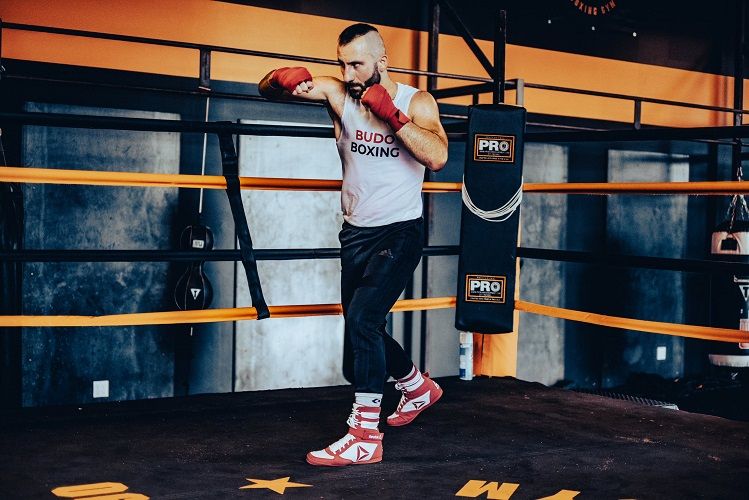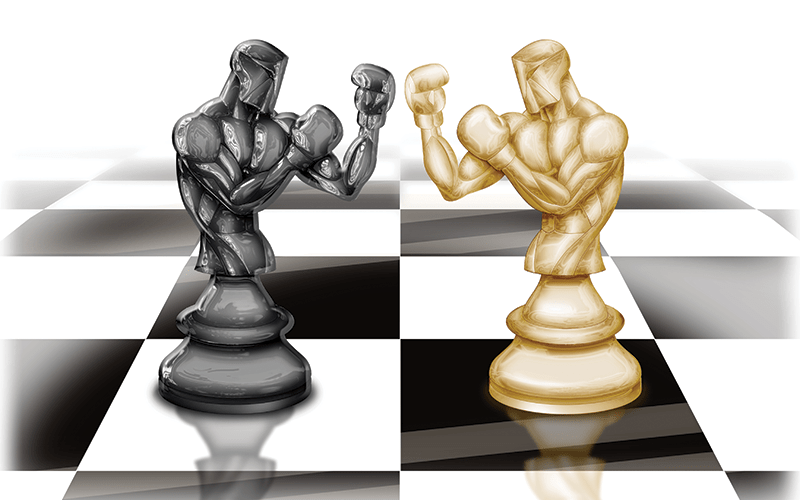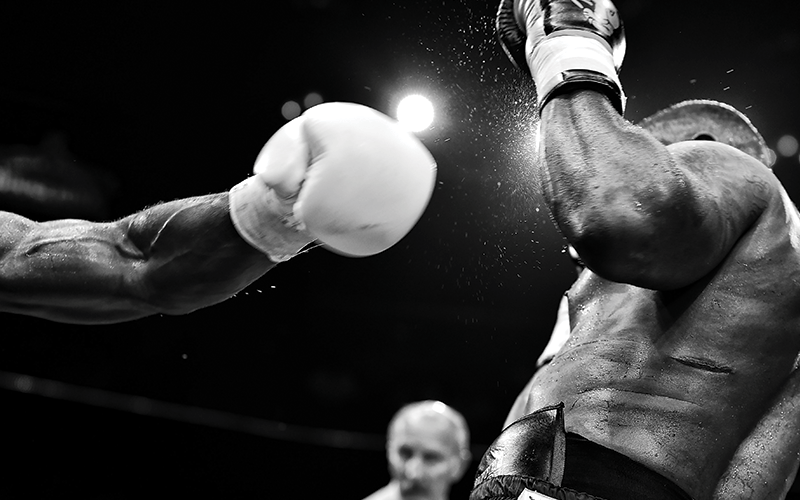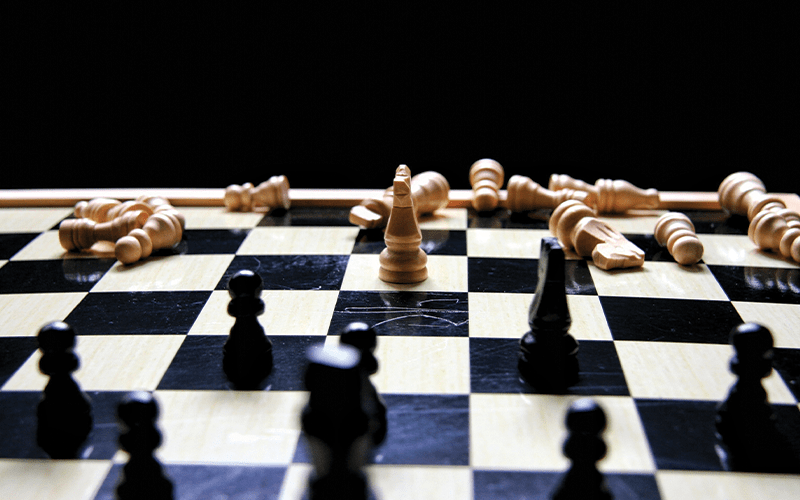
Chess and Boxing - The Parallels Between Punches and Chess Pieces
Chess and Boxing - The Parallels Between Punches and Chess Pieces
This article is a post by Tig Bagdasaryan.
Tig has 15+ years’ experience in boxing and has fought professionally. You can find more information on boxing or Tig by visiting www.thewayofboxing.com
Chess is not just a game, nor is boxing merely fist-fighting. If you look at each of these endeavors only on the surface level, you naively limit your personal growth. As someone that trains in both of these skills quite regularly, I have discovered endless insights into bettering my life. A big revelation I've had is how these are not merely games to play or simply a means to workout. Pursuing each skill develops a stronger mind for focus and a better sense of strategy, both of which are essential for success in life.
The more diligently I train in chess and boxing, the more parallels I see between them. Though they may appear quite different there are many similarities one can apply to both. Hopefully this article will connect some of those dots for you so that you can develop your training further. This article should be especially helpful to those who have at least some experience with chess and boxing. My personal belief is that everyone should partake in both to see the world in a much more enlightening way. As you read this article, I challenge you look beyond the ring and chess board, but at the end of the day you don’t have to listen to me, I am simply a boxer.

(PC: Chris Magdamit, IG: the_art_of_combat_sports)
Winners and Losers
There are winners and losers in the game of chess, in boxing, and definitely in life. Yes, stalemates and draws can occur, but in general each match will usually end with a winner and loser. That being said, as you initiate your game of chess or sparring session, aim to win the rounds. This might seem like a "duh" statement to mention but this competitive mental shift is absolutely vital. You would be surprised to find many people start a game of chess or go into sparring and don't have this mindset from the beginning. The game hasn't started yet and you might not win, but you don't have to lose either.
In boxing terms, that means to win every exchange of punches that you have with you opponent. The general rule in boxing is that fights don't usually end from a single exchange. Fights are won through a series of exchanges that take place. The more exchanges that you win, the more rounds that you win, and thus you win the fight. This is very similar to chess as you attempt to win with every move you make. These small wins with every exchange stack up leading to winning the match. Aim to be the winner throughout.
Remember Respect, but Aim to Win
You can be respectful of your opponents, training partners, and even your teachers, but you must aim to win. Don’t cheat, but that doesn’t mean you don't aim to win by landing more punches or taking more pieces. In boxing, I didn't say try and knock out your training partner, but I did say land more punches to help them get better.
This is much like a skillful chess player pointing out your mistakes in between moves. The more skillful person is still going to win, but they will show you how to get better. If you are less skillful, the board laid out across from you and the gloves that are now wrapped around your hands has given you the chance to be equals in the moment. Be respectful, play fairly by the rules, but its still time to focus on winning.
Go First
In chess, the favorable color to start with is white because you get to make the first move. Unlike chess where you have little choice in the color he starts with, in boxing you get to choose your color. Without sounding like a complete racist, when it comes to boxing you can absolutely DECIDE to be white and go first. That means once the bell has rang, indicating the start of the round, it is now up to you to decide what color you want to play.
I urge you to not wait for your opponent to strike first. This allows you to capture the momentum of how the pace of the fight will go, as you become the “action” versus the “reaction”. This action vs. reaction dance will take place throughout the fight with every exchange. If you can start by being the action to make your opponent react to your moves, it will drastically benefit you. You can go first utilizing offense which is the easiest way, but defensively going first and countering is also an option, as well as constantly moving and repositioning.
As one chess aficionado, Simon Jacobs, put it:
"Momentum is crucial. If you’re able to continuously attack your opponent, you put them on the back foot. Develop your pieces and take control of the center. You'll force them to defend, defend, defend, making it very difficult for them to build a counter attack. Generally, the player who controls the most space in the center will go on to win the game."
Taking Turns
The next important consideration to keep in mind is that you should NOT take turns with your opponent. Unlike chess, where you take turns with your opponent, the beautiful part about fighting is you absolutely don't have to.
I can hit you first and keep going
I can choose to not hit back after being hit (though this is poor strategy)
I can choose to hit you at the exact moment you attempt to hit me
To reiterate, you want become the “action” vs. the “reaction”. Action beats reaction every time in my book so once you become the "action" I advise you to keep that momentum. This forces your opponent to play by your rules. That also means to stay on the attack so that your opponent has to react, being one step behind.
Take Control
The simplest ways to begin your attack is by utilizing your jab or lead straight punch. This is much like starting out by moving a pawn on the chess board. Using your jab from the beginning could be compared to generating a strong pawn structure on the board. If you establish yourself as the action, don't take turns, and utilize your jab to structure the fight, then you are headed for success.
I also want you to think about your jab beyond the mere limited movements of a pawn. Do not forget that if the pawn reaches the other side of the board, it can become a queen. Due to the amount of mobility she has, the queen is considered the most powerful piece on the board. I want you to think of your jab the very same way in boxing. Believe it or not, the jab can attack from every possible position unlike other punches.
Additionally, the beautiful difference between chess and boxing is that you do not have to wait until your pawn reaches the other side of the board. Instead, you can start your onslaught of attack with your jab immediately at the beginning from every possible position. This should reinforce the importance of that particular punch and its ability in boxing. Budo Boxing has created a world-class, unique boxing program that will show you how the "chess pieces" move in boxing.

Develop Your Pieces
Another important point is that losing your jab during the fight also significantly lowers the likelihood of winning the match. You'll have a much harder time winning If you injure your lead hand or underutilize your jab during the fight. By using your jab often you can develop your “pieces” on the board to open up more options for yourself. This means that every time you throw the jab, it will help you develop the rest of your combination. For example, after throwing the jab you can easily add another punch like a cross to further develop your attack. This results in a combination of jab+cross (or combo 1-2), which is one of the frequently used combinations in boxing. The combo 1-2 is one of the most highly effective due to its simplicity, and it all starts with the jab.
The more jabs you throw, the more opportunities you create for yourself to throw various other combinations from different ranges. This keeps your opponent guessing, reactive, and allows you to continue landing the heavier blows until you reach checkmate (knockout).
The Shape of Things in Chess and Boxing
By attacking your opponent, you can also develop towards the center which positions your opponent to the edges. If you haven’t already made the connection, look at how the boxing ring and the chess board are square shaped. That means many advantageous positions can be shared in both.
By controlling the center in boxing, the judges will actually favor you for being in a stronger position. This is also true for playing chess, as moving towards the center gives you more ways to attack your opponent. This is because in both cases, the center is the stronger position to maintain for attacking and mobility purposes. Always avoid the walls or corners since they will dramatically limit the ability to move or attack.
If you can position your opponent against the walls/ropes or corners, it provides you an advantage. The sooner you can develop towards the center and maintain it, the more chances for success you have. Holding the center makes it easier to attack your opponent while limiting their ability to get away. In both cases maintaining the center of the the ring or chess board raises your odds to win the match. Matches can end quickly simply by having the correct positional strategies.

5 Minute Games
Boxing is fast-paced problem solving, much like a five-minute game of chess. One makes a move or throws a punch and must immediately act upon what has just occurred. By moving one piece, I force my opponent to do something and I must immediately embrace the environment while choosing to act quickly without hesitation. Time is not on your side during a five-minute game, and in boxing it sure as hell isn’t either. Every time you hesitate in a fight or fail to act, you give your opponent the opportunity to punish you for it.
I'd like to reiterate the importance of acting and not reacting. Stay the action and keep the fight moving in your favor. Yes, there is someone else across from you trying to do the same, but the truth is you are fighting the clock as much as you are fighting an individual. If your boxing round is three minutes long, you must do all you can during those three minutes to win the round. The concepts I already mentioned, such as staying the action, controlling the center, and developing your pieces utilizing your strongest punch/piece, will guide you to winning rounds.
One Step Ahead
During this type of quick five-minute match, you can’t always strategize ten moves ahead to defeat your opponent. Unlike the movies, fist fighting has too many variables and is far too dynamic to predict. You must create opportunities or take advantage of whatever is occurring after every exchange. Act or attack without hesitation to take advantage of the opportunities you’re creating.
In a fast-paces sport like boxing, you cannot wait for things to magically happen in your favor. Each exchange happens in split-seconds. Remember there are winners and losers, so you must go into every match desiring to win. At the end of the day, fighting is a battle of wills so your will must be stronger than your opponent's, and you must act on this “will” during every second of the match until the final bell.
Don't Rush
Do not attempt to just go for the knockout as fast as you can. Unless you are the likes of Mike Tyson, and I can admit I’m not, do not attempt to go immediately for the kill at the beginning of the bell. Knockouts in boxing are actually quite infrequent considering you’re punching each other while wearing pillows on your hands. Yes, a checkmate in 2 moves is possible, but only in very rare circumstances. Therefore, I suggest that you develop your pieces and don’t chase the knockout. If it happens because you’re doing the right things (that I've been mentioning), great, but it’s not something that should be on your mind from the opening bell.
Remember to work the entirety of the round and take advantage of what you create instead. Wanting a knockout and chasing a knockout are two different things. We all want checkmate, but having tunnel vision can leave you vulnerable and open to making mistakes. Continue creating your opportunities to win.
Taking Hits and Losing Pieces
Boxing and chess are also similar to each other in regards to taking hits during the match. Even the best boxers get hit during training and competition, so don't think that you will be the exception. Just as you'll lost pieces in a game of chess, you will get hit. The goal is not to let these hits or lost pieces affect your mental state. Emotions are good, but you should always be in control of them.
This also goes to mention that if you land a hit or take a chess piece from your opponent, you should not rest on your laurels. You took a piece, GOOD, take another one. You landed a punch, GOOD, land more! Remember to keep attacking until the final bell. There might even be certain moments during the match that will not be in your favor, but just like in chess or boxing, you must make adjustments to your opponent and find a way to win.
If you focus on the wrong things such as the loss of a piece or being hit, then you are letting your opponent control you. It only takes one punch or one mistake in chess to turn the tables around in your favor. Much like in chess and boxing, those who keep adjusting, moving, and working until the end have a higher likelihood of winning. I have seen more fights end favorably for people that were behind simply because they never quit.

Mistakes Cost Us
Things can change quickly with only one bad move in chess, just like the tables can turn immediately with just one punch in the ring. During your pursuit of learning you're going to make mistakes and that's okay. We must continually learn from our mistakes to avoid them happening in our future.
On a chessboard one mistake can then lead to another as it snowballs until the game is over. This is very similar to boxing, but the repercussions are often much more physically painful. As you start noticing mistakes its imperative to take note of them for further study afterward. If you can you must correct them in real time or suffer the consequences. This is all easier said than done but I know that if you keep pressing forward you can possibly turn the tables around. If you lose, learn from it, and continue to fight on another day. The game is only really over in life when you want it to be.
Stop Playing Games, both in Chess and Boxing
How does one never run out of ways to adjust to opponents? You don't merely become a master at either chess or boxing from only playing lots of games or just sparring. This is where diligent training and practice come in. While games and sparring can help teach you some things, there are much more effective methods of learning. Careful study, examination, and practice of patterns are what reveal true learning.
Chess players exercise via puzzles, and boxers do the same through various repetitive drills to dissect individual scenarios. This is where the real IQ growth takes place, as one begins to easily identify patterns that emerge. Boxing and chess practitioners must study every possible scenario and pattern that can take place both on the board and in the ring. This is so that they have an answer for every problem that their opponent can present them. My opponent uses a particular type of chess opener, therefore I will be able to identify it immediately and make my counter move. My opponent uses a particular punch in his boxing, therefore I recognize that pattern without hesitation and know how to counter him. The more patterns you know, the easier it becomes to defeat your opponents.

Grandmaster or Master of Sport
Developing yourself as a strong chess player or boxer doesn’t happen overnight. Boxers and chess players spend lifetimes trying to understand everything there is that make up these difficult endeavors. It is important to make the point that mastery is achievable in each pursuit, but it does not happen without a cost of dedication, consistency, and intelligent training.
It’s not the fun, enjoyable games and sparring sessions with your buddies that make you good at either skill. No, it’s the boring, repetitive, and often mundane drilling and studying that separates people. Some people are talented from birth in many ways. but hard work often makes the difference. I’ve known naturally gifted athletes that were lazy when it came to studying boxing, and when their silver bullets didn’t work in the ring, they had no backup plan. I knew plenty of aggressive fighters that trained hard, but not smart, until they were broken. I knew even more people that may have had the talent, but they lacked the heart and drive necessary to persevere when they lost. Hard work is necessary but intelligent training will always help you persevere in the long run.
The Price We Pay
Unlike chess, boxing has a physical component to it where damage is taken to the body, and more importantly, to the mind. In chess we're taking pieces, but in boxing we're taking punches to the one thing that you need the most to make everything work; that is your mind. You can play chess games until you’re on your death bed. In boxing, the negative side effects of hard training show themselves much sooner, especially for those who only train via means of hard sparring.
To quote the famous fighter Floyd Mayweather, who some consider to be the best boxer in the world, “I beat people with my mind”. That means he very carefully studied the game of boxing, much like a grandmaster in chess, and protected his most valuable asset. Whenever I am bettering myself both in chess and boxing, I focus on improving my mind, knowing it will aid me in both. This is the biggest realization for me as a practitioner. The mind is how we win in chess, boxing and life.
I hope at this point you see the parallels of boxing and chess, and how they're both excellent ways to better oneself. I urge you all reading this to train in both skills intelligently and apply their lessons beyond the ring or chessboard.
More information on boxing or Tig: https://linktr.ee/budoboxing

